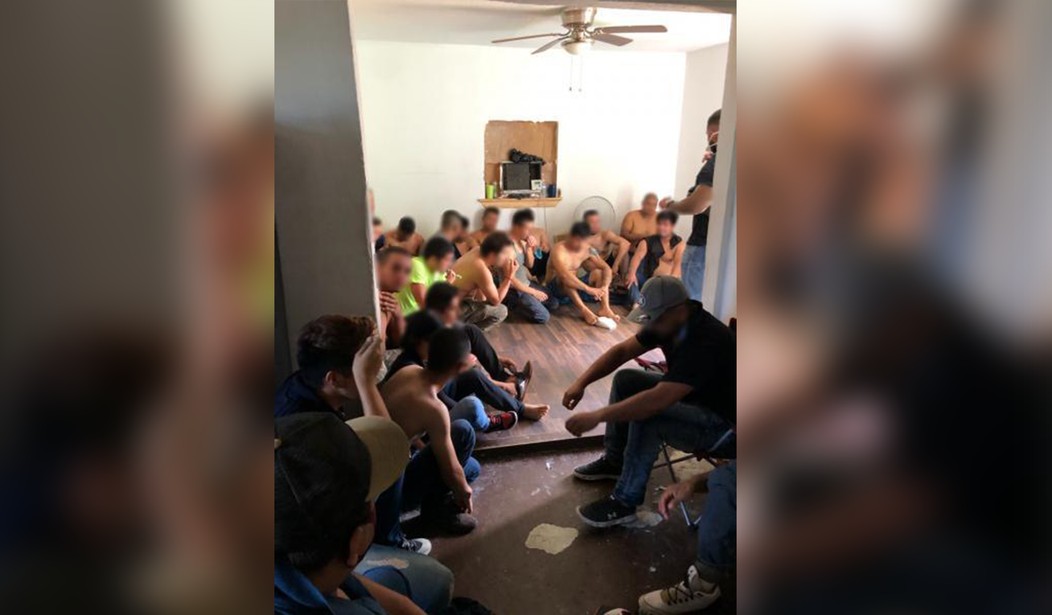The Houston Chronicle published a report yesterday on a new trend in migrant smuggling from Central America to the US: VIP packages. Traditionally, if you wanted to get from, say El Salvador, to Texas or Arizona, you were looking at a very long, very dangerous trip often traveling by foot. You were also at the mercy of kidnappers, gangs and anyone else who looked to profit or take advantage of you along the way. But as cartels have come to dominate the flow of migrants, they are also expanding their offerings.
Susana, a 35-year-old from El Salvador desperate to come to the U.S., had heard stories of migrants being raped and murdered. So she paid a hefty $10,000 early this year for a VIP package: It came with a promise to smuggle her to Houston with “guaranteed security,” rides, food, lodging and no long walks…
Some migrants venture on their own and pay smugglers as they go for specific legs of the trip, but Susana was worried about her journey and was sold when the “viajero,” as smugglers are called, promised a secure trip. Susana did not want her last name identified because she is an immigrant in the country illegally and said she feared for her safety.
Susana crossed the Rio Grande and is now somewhere in Houston. But as she describes, the smuggling doesn’t stop when you cross the border. In fact, much of the effort takes place on the US side where smugglers are paid to get illegal immigrants past a set of internal checkpoints along highways headed north.
After traversing the Rio Grande into the U.S., migrants go through what is known as the second crossing: checkpoints located miles from the international boundaries but still inside border states. Texas has 18 of them, including one of the busiest in the country, the Laredo North Station on Interstate 35…
Many smuggling operators unload migrants from vehicles before crossing a checkpoint, typically with one person guiding them on foot to circumvent the stop point. After walking for hours through the inhospitable arid lands of South Texas they are picked up, usually by another truck, many miles ahead en route to their final destinations. In Texas, it usually means Houston, a major hub for smuggling distributions to eastern and northern cities in the country.
Susana wound up being shuttled between various migrant stash houses in the midst of the Texas power outage. If you search local news outlets along the Texas border you’ll find news of stash houses being busted almost every day. Here’s one from yesterday: “U.S. Border Patrol and Laredo police shut down three stash houses and detained more than 180 migrants within hours of each other on Wednesday.” Once migrants are moved into stash houses close to where they will be released to relatives already living in the US, they get extorted for more money:
Migrants are sometimes extorted before being handed over to relatives or friends in the U.S. Many end up in stash houses, where they are stripped of their belongings, including identification and clothing, so they cannot escape…
“They invariably ask for more money to let you go,” Susana said. She said she negotiated and agreed to pay another $2,000 in exchange for being brought to a public point in Houston instead of another stash house.
So the “VIP service” actually wound up costing $12,000 and, in Susana’s case it included time in a stash house where she didn’t eat for two days and a truck crash during the Texas ice storm where she and a woman she was with were both injured. It’s not what most of us would consider a VIP experience but I guess everything is relative.
What’s interesting about the story is the degree to which this smuggling operation isn’t just happening in Central America and Mexico, it’s happening in Texas, and presumably in Arizona and California as well. Thousands of illegal migrants are being shuttled around and extorted by smugglers on US soil. It’s just one more outcome of the crazy border control system we currently have, where anyone who makes it into the interior of the US is probably here for life. That incentive makes human smuggling too appealing to migrants and too profitable to cartels to imagine it will ever end without major changes.







Join the conversation as a VIP Member